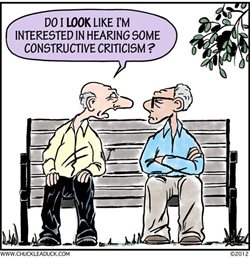“Only changes in mindsets can extend the frontiers of the possible.”
So, what does the Growth mindset actually mean?
There are two types of mindsets: a fixed mindset and a growth mindset. This is a commonly known theory that was originally developed for students by Carol Dweck – professor of psychology at the University of Stanford and a passionate researcher in motivation, personality, and personal growth.
In short, the research says that in a fixed mindset, people believe their personal qualities are static traits and therefore cannot change. Those people document their intelligence and talents rather than work to develop and improve them. They also believe that talent by itself leads to success, therefore effort is not required.
On the flip side, in a growth mindset, people will hold a deep belief that their intelligence can expand through time and experience. When people believe they can get smarter, they realize that their effort has a direct impact on their success, so they put in extra effort, leading to higher achievements. Research done by Harvard Business Review shows that the outcome — the bottom line — comes from deeply engaging in these processes.
Carol Dweck introduced these ideas and wrote a book called “Mindset: The New Psychology of Success” to describe each mindset in greater detail. A great read whenever you find the time to go through.

OK, but what do we do to foster a Growth mindset in the working environment?
Going through this article you will see that most of my examples refer to the corporate environment, as this is where the bigger portion of my experience has been acquired. Still, I am pretty sure we can relate most of these to our professional experience outside the office or to our personal life.
Let’s start from there - Could it really be that we are born with a certain amount of traits of abilities, intelligence, and talent? Do we really want to always appear smart, afraid to be perceived as looking dumb? Maybe this is all human nature, our primal brain that wants to keep us focused on survival, rather than improvement.
Let me share what I have learned on my growth-mindset journey so far
1. Embrace Challenges – they are here to stay, so better get comfortable with them. Avoiding challenges may be a way of dealing with your life, but imagine how seeing them as opportunities can impact your career. They say that the complexity of the problems you solve and the level of your pay increase hand in hand.
2. Roadblocks & Setbacks a.k.a Not-yet Mentality– Solving problems down the corporate pathway may sometimes take you to an obstacle that seems irremovable. I can recall this one case a couple of years ago when a manager had been appointed to lead a transition of 3 revenue-generating positions for a country we provide services to. Lack of trust by the sending country, some pitfalls in the plan and some other factors resulted in 2 out of the 3 employees hired to leave almost simultaneously in the 1st 6 months, taking all the knowledge with them and forcing the whole project to start from scratch. That particular manager could have easily given up, but quickly learned from her own mistakes and through persistence, she managed to re-build, re-train the team in a couple of months. This, in fact, led to the team surpassing their yearly target only 6 months after the re-start, and as a side resulted in the 3-fold growth of the team’s headcount that opened up new career opportunities for associates working in other teams.
My advice is: Put a “yet” in the thought next time you face a setback – rather than going harsh on yourself and grading your attempt as a “fail”, rate it as a “not yet” attempt.
3. Effort – A growth mindset is all about praising effort. Let’s be fair - This is not the common truth for employees in organizations. In any setting outcomes matter. The unproductive effort is hardly a good thing - it is critical to reward not  just effort but learning and progress, and to emphasize the processes that yield these functions, such as seeking help from co-workers, testing new strategies, and capitalizing on setbacks to move forward effectively.
just effort but learning and progress, and to emphasize the processes that yield these functions, such as seeking help from co-workers, testing new strategies, and capitalizing on setbacks to move forward effectively.
4. The “not-always-positive” feedback – Feedback is potentially the most frequently used word that we as HR professionals use when meeting with managers. I, personally, am a strong believer, that development emerges from the moment you start looking for feedback where you least want to find it. There will always be the nay-sayers and the people that will always look for the negative side of the things you do. And don’t get me wrong – I would always advise you to not spend too much time thinking about someone’s bad word on your job. Still, why don’t we give them the benefit of the doubt – quickly re-think it through and see if there is even 1% of precious info in that we can leverage to become an even better version of ourselves. In my Go-to-market HRBP memories, I can recall a great professional, currently holding a people management role with Ingram that a couple of years back was given the feedback that “he just can’t provide feedback” by their manager at that time. At that time, he was still holding a Sr. Associate role in one of the teams he later managed. Imagine if he had embraced the idea that “he is just not good at providing feedback,” how easily that could have drifted him away from his vision of leading a team? Fast-forward to some months ago, that person, already in a management role, was awarded a people management award and I can still recall that one nomination of a direct report of his, that was saying “His great way of providing feedback helps me grow as a professional”.
5. The success of others – “Every time a friend succeeds, I die a little.” – the writer Gore Vidal once said. That pretty much draws the default setting many of us have when someone from our peer group achieves something that separates them from the pack. While being jealous is a normal reaction, learning to prevent it can open up horizons than you could have never imagined. There are literally hundreds of benefits of learning how to celebrate the success of others and here we will challenge you – give it a try! Force yourself to incorporate positive thinking as your default response to events that happen around you for the next 4 weeks. Then reach back to us to let us know if your world started to seem like a little brighter, friendlier place. You may recognize and remember opportunities and begin to incorporate that trait that helped other people achieve their success. Your future more confident and self-assured self could be thankful to you for doing it. A side benefit may be that you’ll find that recognizing others contributes to your own level of happiness.
Based on the almost 6 years I have spent with Ingram Micro, I can state that the strong belief that everyone’s abilities and intelligence can be developed with effort, learning, and persistence is present in this company. Actually, every Ingram employee is being assessed through our Talent acquisition team’s Hire GREAT methodology during the talent acquisition process and receiving your job offer is already a perfect indicator that someone believes in your potential journey can start as simple as a search for a short 16 min training called “Developing a Growth Mindset”on our internal learning platform, called Accelerate, that the company provides. If you feel like it, it may turn out that there is a lot more to see and learn in our company – e.g getting some formal training on giving and receiving feedback by our ultra proficient L&D team, or why not open yourself up to new opportunities by reaching out to your respective manager and HRBP for a short talk over coffee.
In a nutshell, if you have come that far in this blog post, there is a high chance you have the persistence we spoke earlier about and are already in the right mood for finetuning into your own growth mindset. I hope we structured it in a way that helped you find some useful info in it and I use “hope” as a verb clearly understanding that I am on a growth-mindset journey, too. Hope you enjoyed the time reading. See you in the next blog post or around the Ingram Floor.
Cheers,
Mincho
